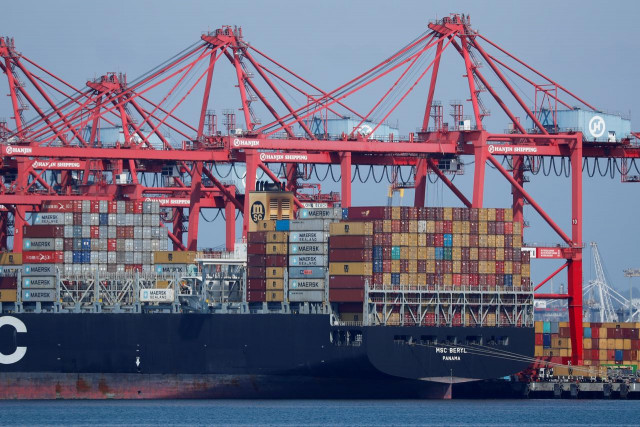Preparing to navigate through age of disruption
Key to survival is not just relief package but also willingness for a paradigm shift

A Reuters file photo.
However, the Covid-19 crisis has changed that perception globally and in fact the pandemic has acted as a catalyst to speed up the process of 4IR around the world.
If one thing that will be remembered in future about 2020 is that it was a year of disruption as since the beginning, global economies were trying hard to recover from the aftermath of the trade war between the US and China that created jitters in commodity and equity markets.
Then disagreement erupted among OPEC+ members that sent crude oil prices crashing. And lastly, the lack of a unified commitment from the world community to fight the coronavirus pandemic, and growing distrust and pointing the finger at each other have made matters worst.
In fact, the cost of the pandemic could rise to $4.1 trillion, or almost 5% of global gross domestic product (GDP), and the recovery could be delayed till 2022 as per Asian Development Bank (ADB)’s recent estimates.
When we look at the main challenge faced by the countries, it is to limit human interaction and make transactions more and more digitally. It seems that besides a few initial teething problems, the transition was almost instant in the developed countries.
This is where we have miserably failed due to not just having sufficient infrastructure such as uninterrupted high-speed internet and equipment but also due to the non-digitised and human-intensive nature of the national economy. Even those segments of society, which could have easily adopted the change such as the education sector, have largely failed, leaving the future of next generation in jeopardy.
Imports unviable
For meeting infrastructure needs, Pakistan’s policymakers in the past never really introduced an environment conducive for promoting the local manufacturing base for computing and communication equipment such as laptops, computers, smartphones, tablets, digital payment systems, etc.
Now, with massive currency devaluation over the past two and a half years, the import of such equipment is fast becoming economically unviable and could be a serious bottleneck in any future efforts for digital transformation.
The other issue is the refusal of society to use formal channels such as banks to carry out monetary transactions, which is the cornerstone for the digital economy. Now, in order to meet the Financial Action Task Force (FATF) requirement, Pakistan is marching with full vigour towards the documented economy. However, it is better to go further to make it digital.
The government does not need to give a jolt to the economy with some sudden shocks like the demonetisation drive which happened in India, but it definitely needs to create sufficient momentum to kick-start the transformation. The blockchain technology is showing a lot of promising results for secure and seamless digital transactions.
While wealthy countries are pouring billions of dollars to resuscitate their economies, the poor countries are limping behind by throwing whatever they get their hands on to salvage their sinking economies.
However, the key to survival is not just the size of the relief package but also the willingness and preparedness of nations to go for a paradigm shift. Fortunately, around 64% of Pakistan’s population is under the age of 30, which is also tech-savvy, and with focused efforts the government can turn the corner faster than others.
The world will be a different place once we get to the other end and we better prepare ourselves to navigate through the age of disruption.
The writer is a financial market enthusiast and attached to Pakistan’s stocks, commodities and emerging technology
Published in The Express Tribune, April 13th, 2020.
Like Business on Facebook, follow @TribuneBiz on Twitter to stay informed and join in the conversation.


















COMMENTS
Comments are moderated and generally will be posted if they are on-topic and not abusive.
For more information, please see our Comments FAQ